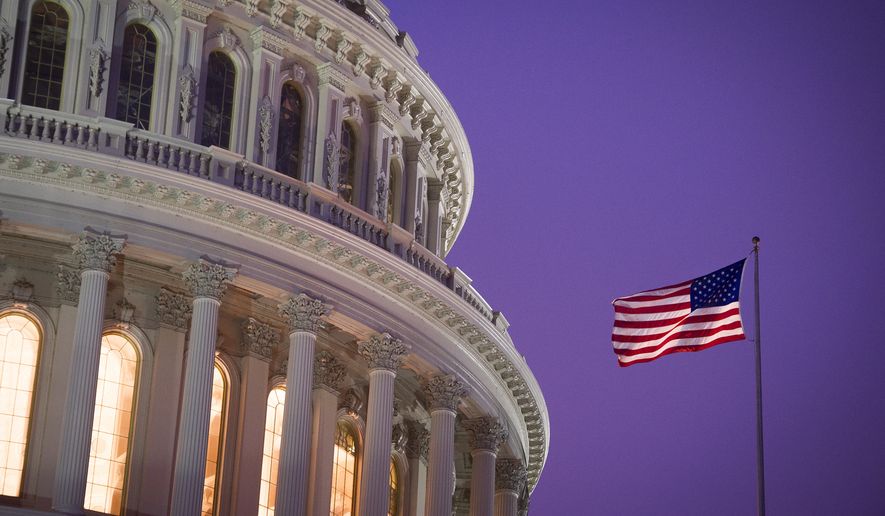Senate Republicans voted Thursday to adopt a permanent ban on earmarks, a move that signals that as long as the GOP controls the chamber the practice of pork-barrel spending won’t return.
A ban had been adopted every Congress since House Republicans imposed it after taking the majority in that chamber in 2011, but it needed to be renewed every two years.
Sen. Ben Sasse, Nebraska Republican, said it was time for the GOP to make the ban permanent.
“The last thing taxpayers need is for the same politicians who racked up a $22 trillion national debt to go on an earmark binge,” he said.
He won the vote in a closed-door meeting of Senate Republicans.
The vote, to adopt the ban as a rule of the GOP conference, was approved on a 28-12 vote, signaling an overwhelming level of support.
And because Republicans hold the majority in the Senate, that rule controls the chamber — and therefore the entire Congress, since the Senate can reject any earmarks coming out of the House.
Earmarks are spending items slipped into bills directing money to a specific project or even company.
They became a dirty word in the last decade, when one GOP lawmaker went to jail for selling them, and stories of boondoggle projects proliferated. The so-called Bridge to Nowhere in Alaska was the most prominent, but stories of money mysteriously being doubled, or earmarks handled so lazily that they went to the wrong targets were also uncovered.
Still, some Congress-watchers say Capitol Hill has become more chaotic without them — and President Trump at one point had suggested Congress bring them back.
In 2016, House Republicans debated whether to restore the practice, with some lawmakers saying there was a majority prepared to do so.
Then-Speaker Paul D. Ryan headed that off, saying it sent the wrong message for the GOP about to be in control of all the political levers of government. He talked lawmakers into accepting a study of the issue — and then quietly buried any further action.
At their height in 2005, earmarks accounted for about 5% of total discretionary spending.
Critics of the practice said earmarks were also wielded by party leaders to entice rank-and-file members to vote for bloated spending bills, with the promise that they would get credit for directing money to pet projects they could brag about back home.
“Backroom deals, kickbacks and earmarks feed a culture of constant incumbency and that’s poisonous to healthy self-government,” Mr. Sasse said. “This is an important fight and I’m glad that my Republican colleagues agreed with my rules change to make the earmark ban permanent.”
Curtis Kalin, communications director at Citizens Against Government Waste, said the House should take a similar vote.
“Nothing epitomizes the Washington swamp more than pork-barrel earmarks, and taxpayers should be thrilled by the Senate GOP’s adoption of a permanent ban,” he said.
That’s unlikely. Top Democrats, including House Majority Leader Steny H. Hoyer of Maryland, were exploring ways to restore the practice earlier this year.
The Democratic chairman of the House Transportation Committee even tried to recruit state highway officials to help his cause, telling them it was time for them to lobby their own lawmakers to demand a return to earmarking.
“Go forth and beat ’em up,” Rep. Peter DeFazio of Oregon said, according to Politico.
• Stephen Dinan can be reached at sdinan@washingtontimes.com.




Please read our comment policy before commenting.